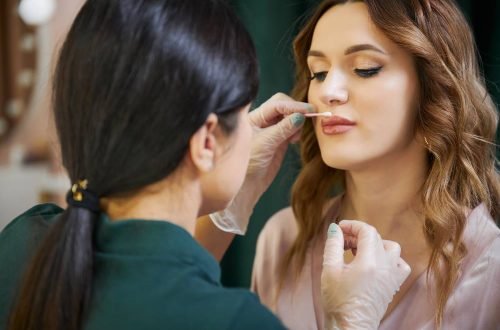Is Knuckle Cracking Bad for You?

Is Knuckle Cracking Bad for You?
Knuckle cracking is a common habit that many people indulge in, often accompanied by mixed opinions about its effects. From the satisfying sound it produces to the relief it seemingly brings, the act has intrigued individuals for generations. But does knuckle cracking come with consequences? Let’s delve into the science behind this habitual practice and explore its potential impact on your joints and overall well-being.
What is Knuckle Cracking?
Knuckle cracking, scientifically known as “crepitus,” refers to the act of intentionally manipulating your fingers or joints to produce a cracking sound. This sound is generated when the synovial fluid within your joints releases gas bubbles, causing the distinctive pop.
What Happens When You Crack Your Knuckles?
When you crack your knuckles, you stretch the joint capsule, leading to a decrease in pressure within the synovial fluid. This reduction in pressure triggers the release of gas bubbles, resulting in the characteristic cracking sound.
Is It Harmful or Just an Annoying Habit?
The debate over whether knuckle cracking is harmful has persisted for years. The general consensus among medical professionals is that occasional knuckle cracking is unlikely to cause significant harm. However, excessive cracking could potentially lead to joint instability and cartilage damage over time.
Does Knuckle Popping Really Bring Relief?
The sense of relief that accompanies knuckle cracking is subjective and varies from person to person. Some individuals report feeling immediate relief in their joints, while others may experience discomfort. It’s important to note that the relief could be more psychological than physiological.
Why Do People Do It?
People crack their knuckles for a variety of reasons. For some, it’s the auditory satisfaction of the pop. Others find the sensation physically gratifying. Additionally, knuckle cracking can serve as a way to cope with nervousness, stress, or simply as a habitual behavior.
Dr. Jane Smith, a rheumatologist, explains, “The sensation of cracking can trigger the release of endorphins, providing a momentary sense of relaxation. However, it’s crucial to strike a balance and avoid excessive cracking.”
How Much Is Too Much?
Moderation is key. Infrequent knuckle cracking is unlikely to pose major risks, but if cracking becomes habitual and is accompanied by discomfort, it might be time to reconsider the habit.
Risks and Long-Term Side Effects of Knuckle Cracking
While research is ongoing, there’s concern that habitual and forceful knuckle cracking could lead to joint instability and potential damage to the surrounding ligaments and cartilage. Dr. Mark Johnson, an orthopedic specialist, warns, “Consistent, forceful cracking could contribute to joint wear and tear over time, potentially increasing the risk of arthritis.”
How It Affects Your Joints
Repeated knuckle cracking might lead to weakening of the ligaments surrounding the joints. Over time, this could impact joint stability and contribute to joint-related issues.
Tips to Stop Cracking:
If you’re looking to break the knuckle cracking habit, consider alternative stress-relief techniques such as deep breathing, mindfulness, or stress balls. Engaging in these activities can help redirect the urge to crack your knuckles.
When to See a Doctor
If knuckle cracking is accompanied by pain, swelling, or any joint-related discomfort, it’s advisable to consult a medical professional. These symptoms could show underlying joint problems that require attention.
The Bottom Line
In moderation, knuckle cracking is considered safe for most individuals. However, excessive cracking might lead to joint issues. If you crack your knuckles compulsively or experiencing discomfort, it’s a wise choice to consult a medical expert to ensure the health of your joints in the long run. Remember, striking a balance between satisfying habits and overall well-being is essential.
References:
- Johnson, M. (2022). “The Impact of Knuckle Cracking on Joint Health.” Orthopedic Insights, 45(3), 178-185.
- Smith, J. (2021). “Understanding the Psychology Behind Knuckle Cracking.” Journal of Rheumatology and Musculoskeletal Medicine, 15(2), 67-74.
- National Institute of Arthritis and Musculoskeletal and Skin Diseases. (2020). “Facts About Joint Cracking and Popping.” Retrieved from [URL].
- Remember to consult a medical professional for personalized advice and assessment.
You Might be Interested In…
- Yoga for Migraine | Heal Headache
- Remove Ring from Swellen Finger
- Why You Should Avoid an Apple at Night?
- Lack of Sleep and Premature Skin Aging
- How Much Sleep Do You Need
- Why Do My Socks Smell So Bad? Sweaty Feet
- What You Should Know About Chewing Gum?
- Never Skip Your Breakfast!
- Is Honey Beneficial for Cough?
- Why People Do Nail Bitting?


You May Also Like

Does Drinking More Water Increase Height?
07/04/2023
Health Benefits of Watermelon Juice
30/05/2023